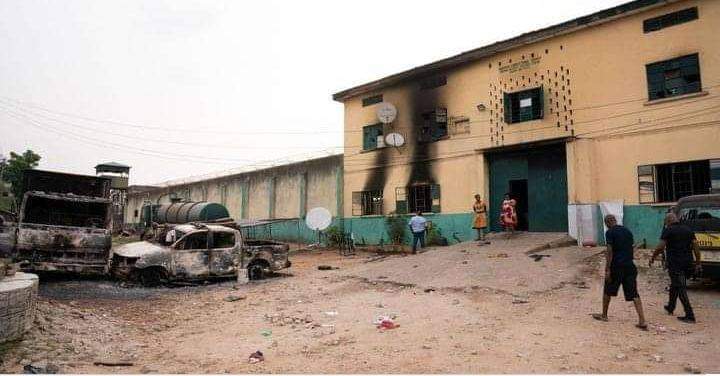Crime Watch
Kuje Jailbreak: Two Years On, Over 400 Inmates, Including Boko Haram Terrorists, Remains Uncaptured

Two years have passed since the devastating attack on the Kuje Medium Custodial Centre in Abuja, and yet, over 400 inmates, including notorious Boko Haram terrorists, remain at large. Despite tireless efforts by security agencies, these fugitives have managed to evade capture, leaving many to wonder how such a large number of dangerous individuals could slip through the cracks.
The July 5, 2022, jailbreak, claimed by the Islamic State in West Africa Province, saw a staggering 900 inmates break free from the facility. While Nigerian authorities launched a manhunt and recaptured 421 inmates in the immediate aftermath, the remaining fugitives have seemingly vanished into thin air.
Security expert Oladele Fajana points to poor data management as a major obstacle in the recapture efforts. “Without a comprehensive database, tracking and apprehending escapees becomes a daunting task,” he notes. Fajana also highlights the issue of porous borders, making it easy for escapees to flee to neighboring countries, further complicating recapture efforts.
The fact that these individuals, including Boko Haram terrorists, remain at large raises serious concerns about national security and the potential implications of their freedom. As Fajana emphasizes, “The government needs to ensure that every citizen’s data is captured, making it easier to trace or arrest them in case of any crime.” The clock is ticking, and it’s imperative that authorities step up their efforts to bring these fugitives to justice.
The Nigerian government has faced criticism for its handling of the jailbreak and the subsequent failure to recapture the fugitives. Many have questioned the effectiveness of the country’s security agencies and the ability of the government to protect its citizens.
The incident has also raised concerns about the spread of terrorism and the potential for these fugitives to regroup and launch new attacks. Boko Haram, in particular, has been responsible for numerous deadly attacks in Nigeria, and the thought of its members roaming free is a chilling one.
As the search for the fugitives continues, many are left wondering how such a catastrophic failure could have occurred. Was it a result of poor planning, inadequate resources, or simply a lack of attention to detail? Whatever the reason, one thing is clear: the Nigerian government must do better to ensure that those who pose a threat to national security are brought to justice.
In the meantime, the people of Nigeria remain on edge, waiting for news of the fugitives’ recapture and wondering what other security threats may be lurking in the shadows. The Kuje jailbreak has left a scar on the nation’s psyche, and it will take time and effort to heal. But for now, the focus must remain on finding and bringing to justice those who have escaped.

